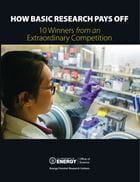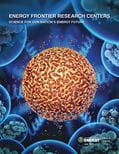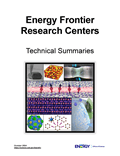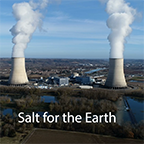Fast Electrocatalyst Oxidizes Hydrogen
January 7, 2011 :: The world’s fastest synthetic molecular electrocatalyst for hydrogen oxidation has been designed, synthesized, and tested by researchers at the
Center for Molecular Electrocatalysis, a multi-institutional Energy Frontier Research Center led by Pacific Northwest National Laboratory (PNNL). This catalyst breaks apart molecular hydrogen at a rate of 50 reactions per second, five times faster than other known molecular catalysts. Such reactivity may eventually be used in fuel cells that convert the chemical energy stored in molecular hydrogen’s bond into electricity. Currently, fuel cells require platinum, a precious metal of high cost and low abundance, to catalyze the oxidation of hydrogen. Catalysts that utilize nickel, iron, or other inexpensive, abundant metals are needed. In research that appears in Chemical Communications, Morris Bullock’s team at PNNL designed and synthesized a nickel catalyst comprised of two cyclic diphosphine ligands with pendant amines functionalized with tert-butyl groups. When reacted with 1 atmosphere of hydrogen gas in the presence of a base, this complex rapidly catalyzes the oxidation of hydrogen. Computational studies, combined with cyclic voltammetry data and NMR spectroscopy, were used to suggest a probable mechanism. This research could lead to more widespread use of fuel cells in vehicles by replacing the costly and scarce platinum catalyst.

Reference:
Yang, Jenny Y.; Chen, Shentan; Dougherty, William G.; Kassel, W. Scott; Bullock, R. Morris; DuBois, Daniel L.; Raugei, Simone; Rousseau, Roger; Dupuis, Michel; and DuBois, M. Rakowski, Hydrogen oxidation catalysis by a nickel diphosphine complex with pendant tert-butyl amines, Chem. Commun., 46, 8618-8620 (2010) [DOI:10.1039/C0CC03246H]; Mitch Jacoby, Nickel Complex Boosts Hydrogen Oxidation, Chemical and Engineering News, 88, 28 (Nov. 22, 2010).










